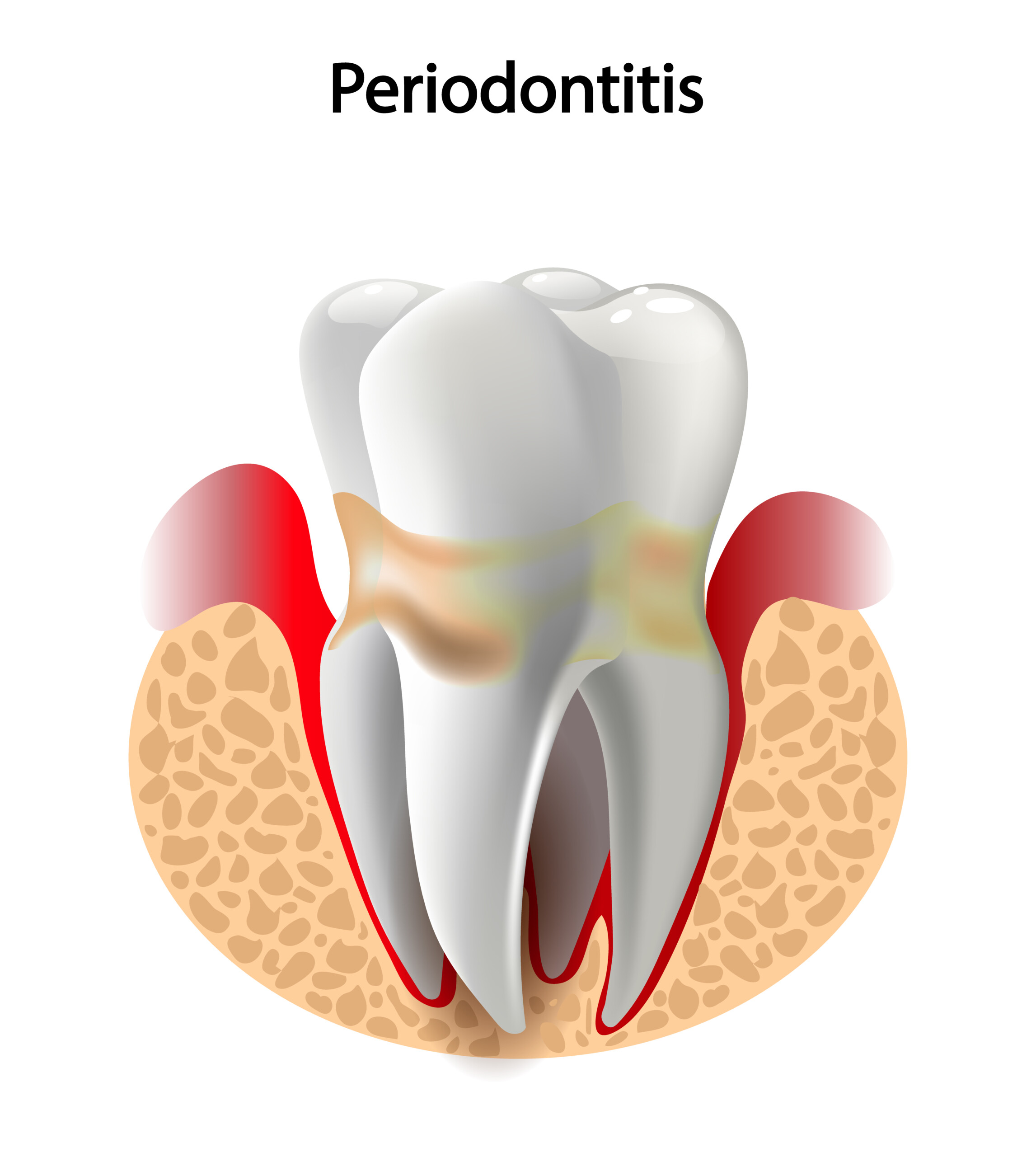DNA analysis of periodontitis-associated microbes, oral microbiome test
Periodontitis is an inflammatory syndrome. The primary cause of periodontitis is bacterial infection in the cavities where the teeth meet the gums and the resulting biofilm. The presence of biofilm is responded to by the general phagocytic cells of the immune system, the macrophages. The macrophages trigger an inflammatory cascade that leads to bone and tissue breakdown and damage.
Treatment of periodontitis can be greatly facilitated by analysis of the microbes that trigger inflammation. Whereas previously only the most important bacteria (Aggregatibacter actinomycetemcomitans, Prevotella intermedia, Porphyromonas gingvalis, Treponema denticola and Tannerella forsythia) were analysed, semi-quantitative analyses of other important bacteria (Campylobacter rectus/showae, Eikenella corrodens, Capnocytophage gingivalis/ochracea, Parvimonas micra, Eubacterium nodatum and Fusobacterium spp.) is possible to carry out.
In many cases it might be important to know the bacteria that cause periodontitis:
- It may reveal whether the most aggressive bacterium, Aggregatibacter, is present,
- it may simplify the choice of the appropriate antibiotic therapy,
- monitor the healing process,
- identify the areas at greater risk of tissue damage,
- estimate the extent of tissue damage, so that the necessary recovery can be more accurately determined.
If inflammation and associated tissue damage persist after the bacteria have been cleared, it is most likely due to the activity of the immune system itself. Some people typically have a greater immune response for genetic reasons. In these people, inflammation may persist after the triggering factor has disappeared. In these cases, the use of anti-inflammatory drugs is recommended.

